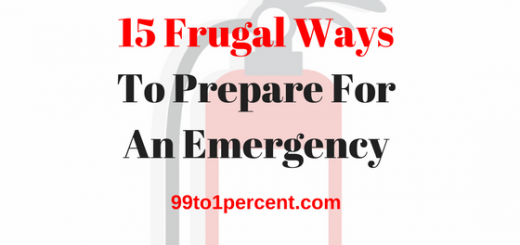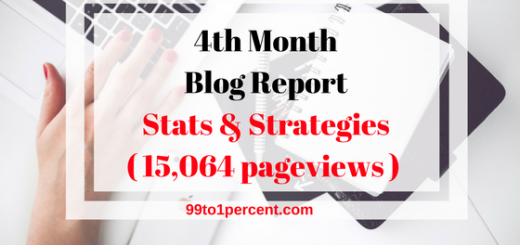
What BS Are You On?
What BS Are You On?
Hey guys, what BS are you on? Seriously, what BS are you on?
Hey… get your mind outta the gutter. We are talking about BS as in Dave Ramsey’s Baby Steps (BS).
Today, we are going to talk about those Baby Steps. Note that we are not affiliated with Dave, we are just big fans of his 😊.
Dave Ramsey has helped more than 4.5 millions people get out of debt and live life like no one else. You might not agree with all the baby steps, but you can customize them to your own liking.
We discovered Dave Ramsey a couple of years ago, and when we read those baby steps, they kind of validated we were on the right path.
A little background on Dave Ramsey:
Dave Ramsey started his rental real estate business at around 26 years old. He grew the business pretty fast to a $4M successful business until the banks called $2M and when he couldn’t find the money to pay back, he had to declare bankruptcy.
From then on, he vouched not to incur any more debt. Using this experience, he came up with a 7-step program, and he has helped more than 4.5 millions people ever since get out of debt, and create wealth with a debt-free, peace of mind.
Here are the 7 Baby Steps:
- Baby Step 0: Commit to no more debt
- Baby Step 1: $1,000 cash in a beginner emergency fund
- Baby Step 2: Use the debt snowball to pay off all your debt but the house
- Baby Step 3: A fully funded emergency fund of 3 to 6 months of expenses
- Baby Step 4: Invest 15% of your household income into retirement
- Baby Step 5: Start saving for college
- Baby Step 6: Pay off your home early
- Baby Step 7: Build wealth and give generously
Baby Step 0: Commit to no more debt
BS0 is a step where you commit to no more debt. As Dave likes to say, you have to commit to stop buying things you don’t need with money you don’t have in order to impress people you don’t like.
You get current with all your bills, or call the companies and make payment arrangements and respect those payment arrangements.
You commit to no more using your credit cards recklessly. You can even cancel most of them and only keep 1 or 2.
Unless you can’t really control your credit card spending, we don’t believe it’s a good idea to cancel all your credit cards, because you still need them to build a good credit.
You commit to buying cars cash going forward, no more car loans.
You commit to living below your means going forward. You can do this by cutting down your expenses, finding ways to increase your income or both.
Baby Step 1: $1,000 cash in a beginner emergency fund
BS1 is a step where you save $1,000 in a beginner emergency fund. Yes, you read that right. Only a $1000 in an emergency fund!
This is supposed to make you uncomfortable and motivated to go through BS2 as fast as you can so you can eventually start working on BS3 where you will get to finally fully set up an emergency fund of 3-6 months of expenses.
Baby Step 2: Use the debt snowball to pay off all your debt but the house
BS2 is a step where you start paying off all your debt except for the mortgage. You pay off your credit cards, your car loans, student debt, loans from family members, …
During this stage, Dave recommends being gazelle intense. Have you ever seen a gazelle (you) run away from a cheetah (debt) like its life depends on it? You have to do the same. You have to run away from debt like your life depends on it.
Dave also recommends starting with the small balances and working your way towards the bigger balances in order to stay motivated.
Other people recommend starting with the debt with the highest interest rates and working your way towards the ones with the lowest interest rates.
We say just do whatever keeps you motivated and on track. You can even do a combination of the two. That’s what I did when I was paying off my $40,000 student before graduating.
I paid off the small balances that were below $2,000, and for the rest I paid off the ones with highest interest rates first. This method kept me motivated, and I was able to pay off the $40,000 2 months before graduating.
Once you have paid off all the debt, you can go to the Dave Ramsey show and do your debt free scream, if that’s your thing!
BS3: A fully funded emergency fund of 3 to 6 months of expenses
Now that you are done with BS2, you can move on to BS3 and finally build up a 3-6 month emergency fund.
Note that it’s 3-6 months of expenses, and not income. Go through the last 6 months of expenses, and come up with the average monthly expenses.
Also consider the expenses you wouldn’t incur if you and/or your partner lost your jobs. For example your childcare, gas, public transit,…costs might be reduced or completely eliminated.
Once you come up with a monthly amount you are comfortable with, you then have to decide the length of time you are comfortable with. Are you comfortable with 3 months, 6 months or maybe even more?
For us, we are comfortable with at least 2 years. We realize that the economy can take a long time to recover from a recession which is why we have a $100,000 emergency fund.
We had poor beginnings where we didn’t know where the next meal or rent payment would come from and we don’t want our kid ever having to go through that, so we keep a very cushy emergency fund.
Note that we don’t keep the amount sitting in the saving account collecting $0 interest, we keep it in short term investments earning interests. We also use it to take advantage of good business opportunities that come up, but we always make sure to top it up again.
Baby Step 4: Invest 15% of your household income into retirement
Now we are on to the good stuff where you start investing at least 15% of your income into retirement. If your employer offers a matching contribution, make sure you take full advantage of that.
Throughout our career, we have worked for generous company that offered a 200% match and not so generous companies that offered only a 2% match. Make sure you know what your employer or potential employer offers and plan accordingly.
You might also want to invest more than 15% of their income. Make sure you know how much you are allowed to contribute into tax-protected retirement accounts and try to take full advantage of that.
Baby Step 5: Start saving for college
The next step is BS5. If you have kid(s), you start saving for college. College is becoming more and more expensive every year, thus, it’s wise to start saving for your kids’ college as early as possible.
We started contributing about $2,500/year as soon our kiddo was born. We also encourage friends and family to contribute to her education fund, instead of giving her toys that she will only get to use for 2 seconds. She’s a simple gal who prefers playing with spoons and empty water bottles.
We also expect her to contribute to her own education by working part-time during the school year, and full-time during summer starting at the age of 16.
Baby Step 6: Pay off your home early
BS6 is the most challenging one. How fast can you pay off your $100K, $300K, $500k, $700K, $1M…mortgage?
Ideally, you did not buy too much house, and can hopefully pay off the mortgage within 15 years, or less?
When we discovered Dave Ramsey, this was the step were on, and are currently still on.
We are planning to pay off our $545K mortgage within 8 years, or 5 years from the time we became serious about it. Three years into the mortgage, we realized the principal hadn’t decreased much as the majority of our payments was paying for interests.
With our new plan, instead of paying $621K in interest, we will end up paying a little over $100K, which means the new plan save us at least $500K in interest.
Other benefits we have had are:
-Kept us motivated to increase our income so we can get rid of the mortgage even faster. Since we set this goal, we have been able to increase our income from $160k to $400k+
-Ever since we decreased our mortgage in half, we have been very comfortable taking on more business risks
-Ever since we decreased our mortgage in half, we no longer take BS (this time we really mean bull$hit) from our employers nor our clients. Just recently, a client tried to screw us by changing contract terms just a few minutes before signing, and we will able to stand our ground and the client ended up accepting the original terms.
BS6 is also the most controversial baby step since not everyone agrees with paying off the mortgage early. Some people believe it’s better to take that money and invest it either in stock, real estate, or other areas/businesses.
If that’s you, it’s ok, you can just skip this step, you don’t have to discount the whole program.
Baby Step 7: Build wealth and give generously
BS7 is the fun one. You have completed the hard part, and now you have arrived at the fun part. You get to build wealth and give generously.
You have “Lived like no one else, so you can live and give like no one else” as Dave likes to say.
You can even go back to the Dave Ramsey show and do your debt free scream for the 2nd time.
We are really looking forward to reaching BS7 in 2020 at 39 years old. We also look forward to starting a school for kids especially underprivileged kids once we FIRE (Financially Independent, Retire Early).
Dave Ramsey’s book
Do you want to know more about Dave Ramsey and the 7 baby steps? Get his book The Total Money Makeover: A Proven Plan For Financial Fitness
What about you guys? What BS are you on? What do you think of the 7 Baby Steps? Any step you would want to customize for yourself? Are you on BS7 yet? If so, how are you living like no one else?
Thanks for reading. Please feel free to comment, share and subscribe! We love ya and wanna get to know ya!
Do you want an easier way to manage/track your finances/investments? The Personal Capital app can help. Do you want to start blogging? Bluehost can get you started. Make sure to also check out other resources that we recommend such as books that have helped us get where we are.
Do you want to learn more about us? If so, you can also read these other posts:
- About us
- How We Increased Our Annual Income From $0 to $160K to $400K+
- How we live on 15% of our income
- Joining the Million Dollar Club/Challenge and So Can You
- How To Pay Off A Mortgage In 5 Years
- Our Biggest Money Fight and 9 Lessons Learned
- Our 6 Financial Mistakes and 15 Lessons Learned
- How I Paid Off My $40,000 Student Loans Before Graduating
- The resumes that bring in $400,000+/year (Samples Provided)
You may also like...
36 responses
-
[…] What BS Are You On? […]










I have to admit I’m not a huge Dave Ramsey fan. Though, I do need to take the time to actually READ HIS BOOKS. I love that he’s all about personal responsibility with debt. And his snowball strategy makes sense, for the most part.
That said, we’ve amassed huge debt to support our real estate business. Subscribing to the school of “other people’s money” to make it happen. We do plan to pay off our home mortgage, but not the rentals. Some debt is good debt, after all.
Yes, you can def customize the plan to your liking.
That is a very informative article. Well done!
Thanks
I’m not a fan of DR. I think much of his advice is sub-optimal. The debt snowball method is inefficient. Paying off a mortgage early is not right for everybody. Investing in high cost mutual funds seems like criminal advice to me. I have so much respect for DR due to the number of people that he has helped. His motivational abilities to get people to straighten out their financial lives are impressive. I just hope the people that start out on his path realize that there is a better way sooner rather than later.
No program can ever be right for everyone. That’s why you can always customize it to your liking. Do whatever works for you, as long as you are progressing.
That’s good steps, encouraging people to reduce debt, save and improve financial life. Each individual is different. Their levels of risk tolerance vary. As long as people are doing things that are the best to themselves, it might be okay. I guess there is no universal step-by-step approach, you have to tailor it to suit yourselves.
yes Helen, there’s no universal step-by-step approach that can please everyone. Even Jesus wasn’t able to please everyone lol
Nice blog title! Definitely caught my eye.
Dave has bee great for me and my family, but once we started earning more, out of debt and needing more investment advice he’s not a fit any more.
Great article outlining his process to get out of debt though!
Yes, some people like to switch it up once they start earning a high income.
Dave’s advice works – but it’s perhaps not the best mathematically all the time. Still, he needs to speak to the masses, so it’s tough to really put forth a message to such a broad audience. His advice is simple and actionable.
For starters I think his $1k emergency fund is too lean. I understand wanting to be uncomfortable as a motivational tool, but the reality is that $1k will not go very far in the event of a job loss.
Other than that I think his 15% benchmark for retirement savings is insufficient before paying off the mortgage. Aiming for something higher will obviously mean less money to use on paying off your mortgage but I think far too many people are ill-prepared for retirement, and saving 15% is better than 5%, but still doesn’t make me comfortable.
Happy that, as a childfree couple, we get to skip a step 🙂
Yes, 15% is def better than the recommended 10% “Pay Yourself First”.
I’ve noticed Dave gets a lot of hate, but I actually think a lot of his advice is financially sound and I love his hardcore advice for getting out of debt – cutting expenses drastically, eating out less, etc. I like all the steps here, but I think the 15% savings rate could be even higher for people who are serious about achieving financial independence quickly.
Great article, thanks for sharing 🙂
yes, that 15% can be increased especially once you are done BS3
I don’t subscribe to everything Dave Ramsey says but I am working on steps 2 and 3 with a vengeance. Thanks for the article to keep me focused and motivated in this holiday season where the norm is overspending!!
Go Samantha Go! Rooting for you! Keep us updated and let’s motivate each other to move through the steps as fast as we can!
I think Dave is great at inspiring and helping people get out of debt and find their footing. However, I can’t say I am on the same page with him when it comes to investing. I do listen and respect him for where he is today, I just think a bigger portion of his wealth has come from selling things rather then investing. Great post I am on BS #6 and am paying off the mortgage while still investing more heavily then recommended in this plan.
Nice, when do you hope to reach BS7?
I could crush through and get there in the next couple years but I plan on having a bit of a more balanced approach. Just my personal opinion, I feel that even under extreme distress I would be fine with how I am positioned.
Yes, it’s important to find a good balance and have a life too. That’s one of the reason we moved our target date from Dec 2019 to Sept 2020.
I’ve listen to Dave Ramsey’s podcasts a few times and he is very inspirational in getting people out of debt. I am familiar with his baby steps creation and how it’s great guide to be debt free and build your wealth.
We are on BS6 and may be stuck on there for a while since we haven’t bought a home yet but hopefully once we find one we will plan to pay it off as early as we can. We are also doing half of BS7 where we keep building our wealth. Since our rent is low, we take advantage of it buy saving aggressively and invest in index funds so that wealth will increase gradually.
That’s great Kris. BS7 is a good place to be, even if it’s only half 🙂
I listen to Dave Ramsey quite often, admittedly I have not applied but a few of his steps. I hope you do think I am spamming the comments section but this article https://lifeguider.com/how-to-avoid-buying-things-you-do-not-need would definitely apply to step BS0 to stop buying things and stop occurring more additional debt.
Thanks, will check out the article
Dave Ramsey has a simple program that works. It’s better to have a simple program that helps a lot of people, than a complicated program that helps no one or just a few people. And you are going to get haters wether you are Dave or MrMoneyMustache.
Hey, Jennifer, yes, you are absolutely right. Whether you are DR or MMM or any personal finance blogger. Hey, we have only been blogging for 2 months, and we already have a couple of haters 🙂
1st, nice job on being on step 6. we’re older than you but had a ball with 15 years of low earning fiscal irresponsibility in adulthood. i was just looking at an old spreadsheet from 2009 that still had student loans and a car loan and mortgage on it. with a little motivation those things are gone and it really is like a snowball, including on the black side of the ledger when savings and investments start to snowball! so, step 7 feels really good and with regards to paying off your house early- we paid ours off about 4 years ago and have slept better ever since. zero debt is very relaxing.
p.s. thanks for the feedback on the blog. i kinda knew something was wrong with the comments section and some of the other parts that i could not edit. i think i finally got this straight so amateur hour can resume. happy holidays.
Another BS7er! Congratulations!!! Looking forward to joining the club in 2020, fingers crossed.
Glad to hear you fixed the comment issue, now I can leave you some comments, will be visiting your blog again soon.
Still not able to post a comment on your blog btw 🙁
I listen to Dave Ramsey from time to time. I think he great at motivating people to get out of debt. I also think his Baby Steps provide a good framework that you can use to take control of your finances. I do think, though, that he can be a bit too rigid in his application of the Baby Steps. I actually have an upcoming post about this.
We are currently on BS #6, but we’re also tackling BS #7 at the same time. Figured I could pay off the mortgage and build wealth simultaneously.
True. You can do BS6 and BS7 at the same time. It’s kind of what we are doing too.
I really like to listen to Dave Ramsey on YouTube when I need motivation and inspiration. He doesn’t beat about the bush, and tells things we don’t want to, but we need to hear. Great article 🙂
Yes, we love his Youtube Channel and love listening to inspiring stories of the people who call in.
I’m doing both baby step 2 and 4 right now. I’ve done baby step 3. I know Dave says don’t invest until all the debt is gone, but I can’t ignore the opportunity costs of the tax-advantaged accounts (only so much can be done a year, so after I’m done with debt, I can’t suddenly put in more than what I’m allowed per year in those accounts.)
Yes, I agree 100%. Gotta top up those tax-advantaged accounts.